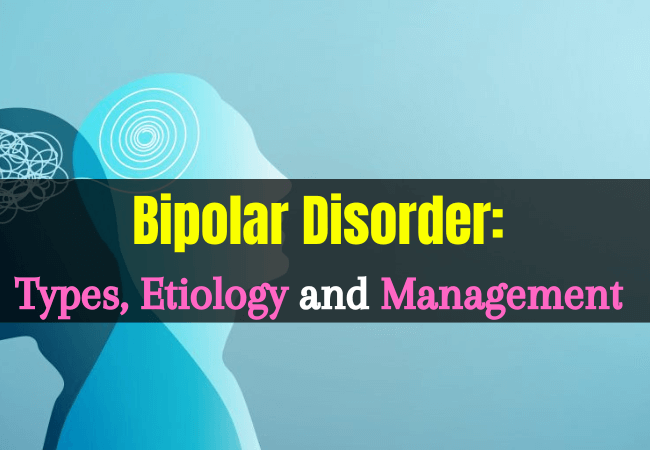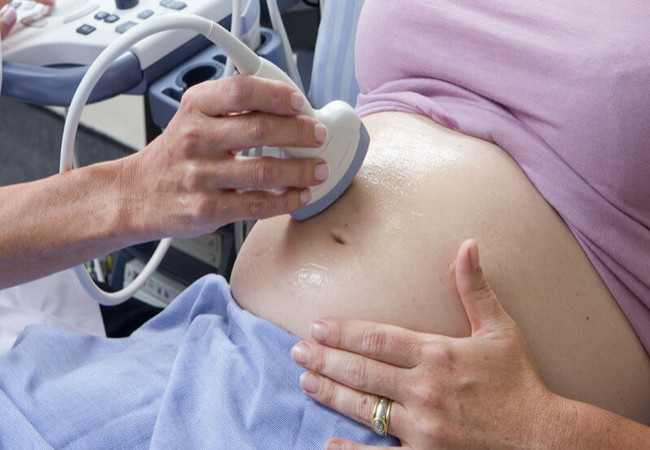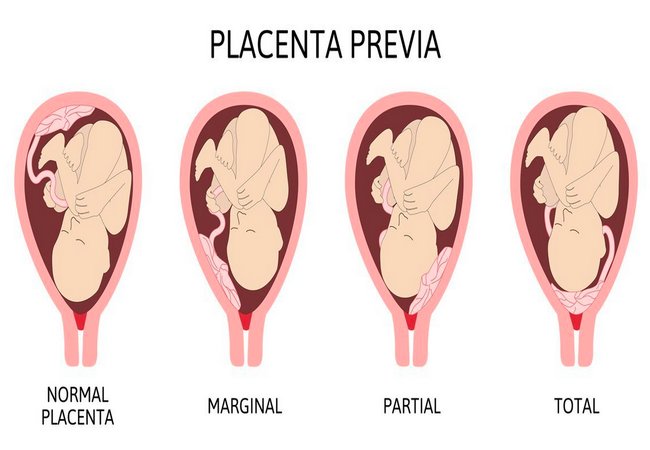Etiology, Management and Types of Bipolar Disorder
What is Bipolar Disorder?
It is a brain disorder that cause unusual shifts in a person’s mood energy and ability to function. It is a long term illness which has to be carefully managed throughout a person’s life’.

Classification or Types of Bipolar Disorder:
- Type I Bipolar: Episodes of mania and major depression.
- Type II Bipolar: Episodes of mania, hypomania and major depression.
- Type II Bipolar: Episodes of major depression.
- Type IV Bipolar: Consists of all other forms of bipolar disorders.
Etiology of Bipolar Disorder:
Biological Factors:
Heredity:
- Genetic predisposition is common, life time risk is noticed in first degree relatives of the client.
- If one parent suffers, 25 per cent chance for children to have the disorders, if both parents are suffering, 50-75 percent chances to occur in children.
- Twins arc more predisposed, higher percentage (40-70%) is observed in identical/monozygotic/uniovular twins than dizygotic twins (20%).
Biochemical Factors:
1. Imbalances in catecholamine (Norepinephrine, dopamine) levels or its functions obliterate results into MDP. If catecholamine amounts are increased mania, will occur; decreased levels predisposes for depression.
2. Deficiency in serotonin levels results in MDP.
3. Cyclo-thymic personality.
4. Deficiency in GABA, acetylcholine contributes for mania occurrence.
5. Effects of physical illness:
- Brain disease,
- Endocrine disorder,
- Certain infections like HIV.
Social Factors:
- Rejection of children by parents.
- Stressful life events, traumatic or unpleasant or disturbing life experiences.
- Social pressures.
- Socio-cultural factors.
- Difficult or strained interpersonal relationships; interpersonal loss, interpersonal role dispute or transition or deficits.
- Loss of loved one (real or symbolic).
- Financial difficulties.
- Unemployment, poor job opportunities.
- Criticism and rejection.
Management of Bipolar Disorder:
Acute Treatment of Bipolar Disorder:
- The primary goal of the acute phase is to manage acute mania, hypomania, or depressive episodes, and associated safety-risk issues.
- Diagnostic tests should be performed to rule out potential medical etiologies for mood symptoms, especially if this is the first episode of mạnia, hypomania, mixed mood symptoms, or depression.
More questions related to this article:
- Define bipolar disorder.
- What do you mean by bipolar disorder?
- Define and classify bipolar mood disorder.
- Enumerate the etiology of Bipolar disorder?
- Write down the etiology of Bipolar disorder?
- Give the management of bipolar disorder.
- Describe the management of bipolar disorder.











